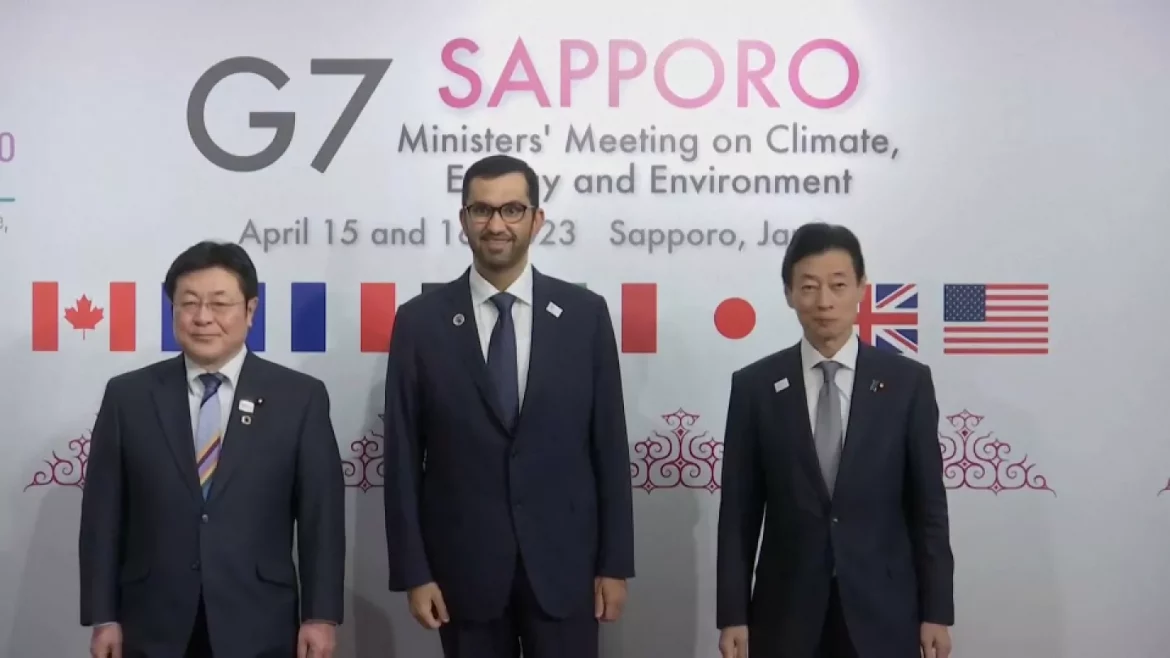The Group of Seven wealthy countries’ energy and environment ministers gathered on Saturday in northern Japan to discuss how to balance the world’s heavy reliance on fossil fuels with the pressing need to reduce carbon emissions in order to avert the worst effects of climate change.
Before the G-7 summit in Hiroshima in May, discussions are taking place in the northern Japanese city of Sapporo in an effort to reach an agreement on the best course of action.
“We are facing the challenge of promoting reforms to resolve climate change … and achieving energy security at the same time,” economy minister Yasutoshi Nishimura told the ministers as the meetings began.
John Kerry, the US Presidential Envoy for Climate, said the G-7 was “powerfully positioned to be able to lead” in the fight against global warming while speaking outside of the conference. “We appreciate Japan’s leadership and its stewardship of the G-7 this year.”
Read Also: climate-adviser-warns-lack-of-ni-government-puts-net-zero-targets-at-risk
However, disagreements still exist about how and how rapidly carbon emissions may be eliminated, particularly now that the conflict in Ukraine has intensified worries about energy security, making that endeavour more difficult.
The G-7 nations agreed to work together to achieve a fully or largely carbon-free electrical supply by 2035 at their meeting in Germany last year.
US officials expressed support for Japan’s approach to bridging the transition to renewable energy, which focuses on so-called clean coal, hydrogen, and nuclear energy. Some others want the switch to renewable energy to happen more quickly.
Recently, the head of the UN urged rich nations to stop using coal, oil, and gas by 2040 and to stop new fossil fuel exploration. While emissions have started to decline in the G-7 countries, particularly in Europe, they are still rising internationally, especially in large, rapidly growing economies like India and China.
The G-7 nations hope to lead by example, US Energy Secretary Jennifer Granholm said: “We expect that those countries see that this can be done and the nations that have the wherewithal to make these investments to first out give hope to others to be able to do it as the technology lowers the cost.”
The US government’s approval of fossil fuel initiatives such as the Willow project on Alaska’s petroleum-rich North Slope has drawn criticism for their environmental impact and for running counter to President Joe Biden’s pledges to cut carbon emissions and move to clean energy.
Story adapted from Euro News
